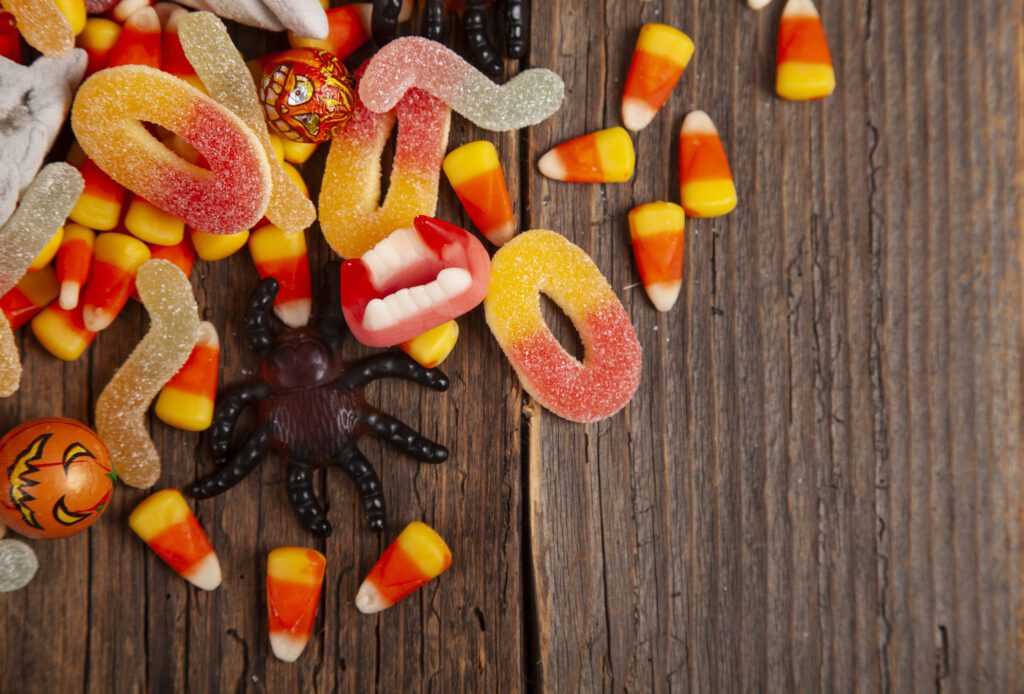With Halloween quickly approaching and the beginning of the holiday season, many people, kids and adults included, are excited for seasonal treats! As with anything, sugar is okay in moderation. The foods and beverages you eat and drink can impact your oral health. We want you to stay healthy this holiday and ensure your kids stay healthy, too, by watching sugar intake while still enjoying the holidays. Our dental office treats children and adults in Fruitland, ID, addressing common oral health problems that can occur due to excessive sugar intake.

Why Does Sugar Increase the Risk of Decay?
Consuming sugary foods or drinks and not brushing or flossing properly can lead to problems like cavities and gum disease. Dental caries are holes or pits in the tooth enamel created by harmful bacteria. These bacteria are attracted to sugars and starches left on the teeth. As the bacteria feed on these sugars and starches, they create digestive acids that eventually break down the outer layer of teeth, or the tooth enamel. Eventually, patients can experience cavities.
Sugar not only affects the teeth. Gum disease, or periodontitis, occurs when harmful bacteria that feed on sugars and starches irritate and inflame the gum tissue. Periodontitis begins with bleeding and red gums and can quickly lead to gum recession and eventual tooth loss. Eating an excess of sugar, not brushing or flossing properly, and not visiting the dentist regularly can increase the risk of decay.
Minimize Tooth and Gum Damage
Follow these tips to help prevent problems like tooth decay and gum disease:
- Know Where Sugar Hides: Sports drinks, juices, and energy drinks can contain more sugar than you think. Look at nutrition labels if you are unsure of the contents of drinks you consume regularly.
- Hydrate: Water, especially fluoridated water, washes away food particles. Drinking water is also preferable to drinks that contain sugar, as these drinks can coat the teeth and gums.
- Brush and Floss: Brushing your teeth removes food debris and bacterial buildup. While many patients brush, they may not think flossing is important. Flossing before brushing can also remove debris that builds on the gums and between teeth. Many patients can develop gingivitis if they do not floss, which is why they experience gum pain and bleeding gums when brushing.
- Visit the Dentist: You should visit the dentist biannually or every six months for a routine cleaning and examination. If we discover signs of decay, we will provide preventative treatments. We also provide fluoride treatments and sealants for younger patients to protect teeth prone to decay.
Have you already noticed early signs of tooth decay, including tooth pain and sensitivity? Do your gums bleed when you brush your teeth? Call Payette Dental today at 208.243.9807 or request a dental appointment online.
